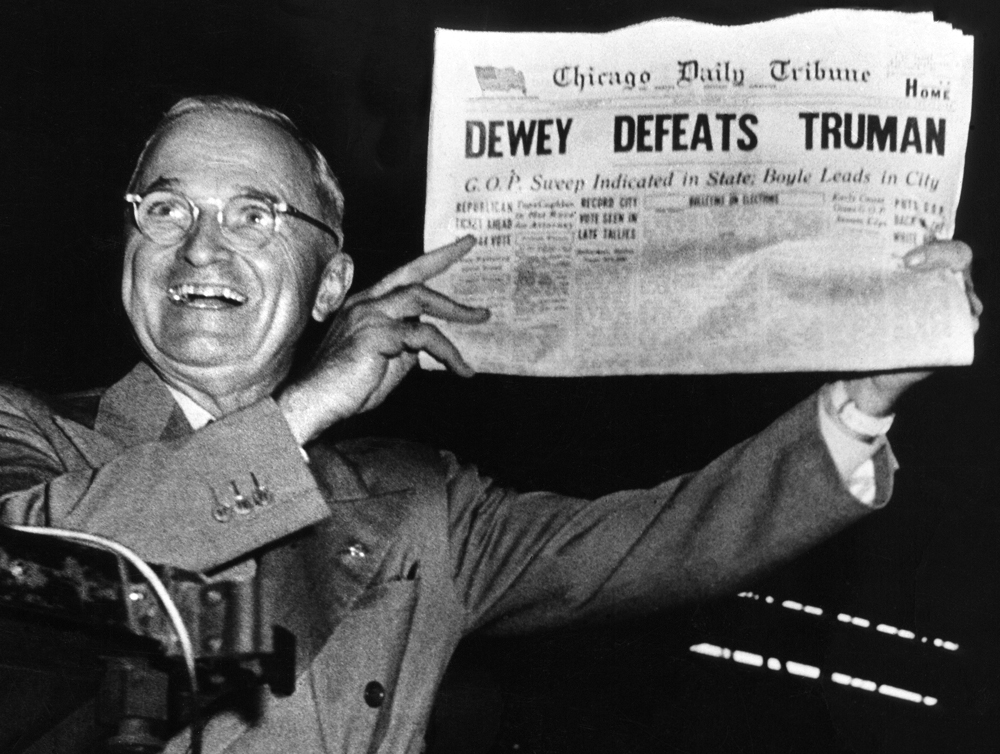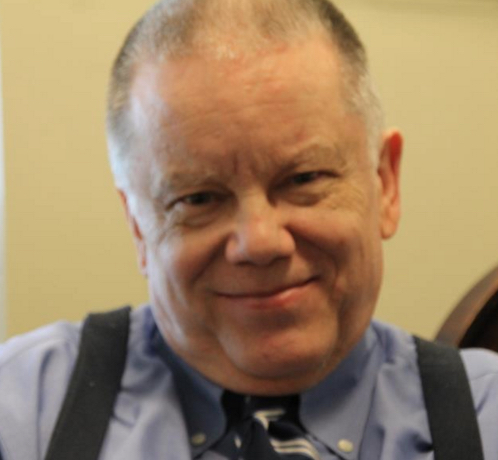Dewey defeats Truman 2.0, and why so many pollsters were blindsided by Trump

Anyone who’s been caught in the rain on a day that was promised to be nothing but sunshine is familiar with the feeling: Can’t these people get anything right?
And yet, most days, the meteorologists who predict the weather come pretty close. Forecasters of both weather and voting behavior have a set of sophisticated tools they bring to their jobs, which generally work, except when they don’t.
This year, in predicting the presidential election, they didn’t work. What polls consistently suggested would be a victory for Democratic former Secretary of State Hillary Clinton – both nationally, and in Michigan – turned into a humiliating upset, and a victory by Republican billionaire Donald Trump. As a stunned nation confronted the results, many asked why they’d been led so astray by poll after poll.
Why? Because voters are people, and people are like storm clouds and cold fronts; they generally move in predictable ways, but not always.
Also, because the better the polling, the more expensive it is, and the traditional clients for political polling include news organizations, the budgets for which have been decimated in recent years.
Today’s client commissioning a poll is likely to have a whole different set of objectives than just figuring out who is going to win an election. They may want the results quickly, and as in many efforts, the less time spent on task, the less likely it is to be done well.
These are among the explanations offered by Michael Traugott, professor specializing in political studies at the Institute for Social Research at the University of Michigan. There are other reasons – including an increasing number of voters who no longer have land lines and are reluctant to answer their cell phones when unfamiliar numbers call.
Once the sample of voter sentiment is obtained, “a lot of the modeling pollsters do is based on what happened last time,” by which he means in the most recent previous election. But, as pollsters across America discovered the hard way this week, “every race is different,” Traugott said, adding that there is some art associated with its analysis. This includes the fact there’s no standard “likely voter” model, so commercial pollsters create their own, and consider them proprietary, making them difficult for others to analyze.
Polling, in other words, is “constrained applied science,” Traugott said, and the constraints are always changing.
Tim Kiska is among those who got it wrong.
He does not attempt to deflect blame or responsibility, and admits that a model he has relied on for accurate results since 1974 simply failed him in 2016. His client, the Detroit Free Press, received national attention Tuesday evening for its early call that Clinton would carry Michigan. She didn’t, and Kiska and the paper were left struggling to explain the error on Wednesday.
In the wreckage of this embarrassment, Kiska told Bridge that his miscalculation stemmed from jumping the gun based on returns from about three-quarters of the 80 precincts that Kiska, a former journalist and a professor at the University of Michigan-Dearborn, typically examines across the state.
He explained his method: He has reporters fan out around the state, north to south, and has them call in results as soon as polls close. Those numbers are plugged into a spreadsheet, which compares them with results from previous elections. Kiska does other analytics, and makes his call based on what he sees.
At 9:15 p.m. Tuesday, he said, he had 60-65 precincts reporting, indicating Clinton was up 3-5 percent. That figure, Kiska said, was critical.
“It’s not that I was under any pressure to call it early,” he said. “But it was consistent as the returns came in.” And, he added, it was the figure that advance polling had her winning by.
“Was I sucked in by that groupthink?” he said. “I think maybe so.”
If he had it to do over again, Kiska said, he’d have waited another hour before making the call, because the later-arriving data showed a startling surge for Trump in the state’s rural counties, the equivalent of a fast-moving storm front that appears out of nowhere. Suddenly, that confident early prediction was in peril.
At the same time, the state’s largest, traditionally Democratic urban areas were still reporting. Although Kiska said he grew nervous about his early call, he thought Genesee, Wayne and Washtenaw counties would still carry the state for Clinton.
Aaron Kall, director of the U-M debate program and dean of students, agreed with Kiska’s battlefield assessment.
"The major error of the Free Press calling the state for Clinton was kind of consistent with those polls that were released a few days before the election that had Clinton favored by as much as 5 points," Kall told MLive.com. "The major take here is a lot of people doing projections were making those projections based off of 2012 and 2008 election data. The thing that Trump did was get increased support in rural areas of Michigan."
Kiska stressed that pollsters who want to keep working generally don’t try to skew results to please clients.
“People really want to get it right,” he said. “It’s not like I’ve got my thumb on the scale.”
But sometimes crazy years happen. And this, Kiska said, was “worse than ‘Dewey Defeats Truman,’” the infamously inaccurate Chicago newspaper headline a triumphant Harry Truman held up on election night in 1948.
“In the end, it was me and my data,” Kiska said. “It is what it is.”
See what new members are saying about why they donated to Bridge Michigan:
- “In order for this information to be accurate and unbiased it must be underwritten by its readers, not by special interests.” - Larry S.
- “Not many other media sources report on the topics Bridge does.” - Susan B.
- “Your journalism is outstanding and rare these days.” - Mark S.
If you want to ensure the future of nonpartisan, nonprofit Michigan journalism, please become a member today. You, too, will be asked why you donated and maybe we'll feature your quote next time!


 Tim Kiska’s polling practices have served him well, delivering accurate predictions, since 1974. This year they failed. (Courtesy photo)
Tim Kiska’s polling practices have served him well, delivering accurate predictions, since 1974. This year they failed. (Courtesy photo)